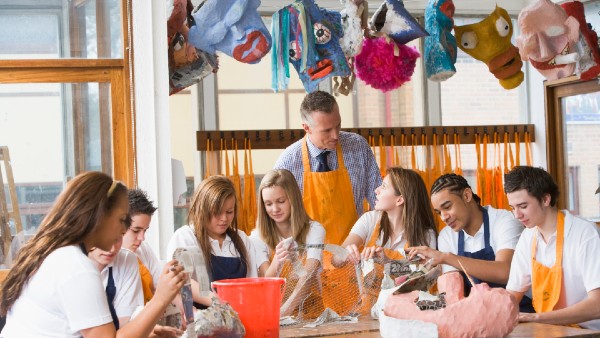In 2017, you still have to look very hard to find any diversity within the big companies in almost every industry.
Classical music is a deeply hierarchical business currently in dire need of disruption. There are quite a lot of support avenues for aspiring artists and musicians, such as individual performer grants and scholarships at conservatoire level. The challenge lies in how to adapt if the foundation of the industry behind it is still so rigid and traditional. How can this artform appeal to the wider public if we are all the same, all similarly educated, all one big homogenous mass?
There needs to be a push to bring new talent into the industry. Not just the archetypal pale, stale male; all ages, all backgrounds, all ethnicities should be encouraged to undertake production courses, management schemes, concert planning routes and other traineeships. Classical music and opera can have a transformative effect on anyone at any time in their life. Surely if you felt more comfortable to experience it in the right setting you would fight harder to ensure its future is secured? So how do we get new audiences into it?
Talent needs to not only be fostered on-stage (and there is a lot of fantastic British talent on stage right now) but off-stage as well. There are a few promising initiatives like #keychange (PRS Foundation) or Jerwood Charitable Foundation or the ENO’s Baylis scheme. And I was delighted to read of the Old Vic Theatre audience figures in a Times article on 25th October 2017, which reported an increase in audience numbers of 10% and 57,000 new visitors to the theatre over the past two years.
A brief read over the latest annual report of the Royal Opera House (ROH) made me question two points. First, should Arts Council England (ACE) funding (£25 million a year) be granted if the revenue stream of the ROH is actually ‘healthy (box office £45 million, private philanthropy £25 million)’. And if so, should they publicly prove their reach and impact? If their audience figures are as strong as indicated, assuming the target audience works out to be as anticipated: middle-class, white and in their middle age as well as the expected tourist numbers. I would imagine Alex Beard, CEO, would make drastic changes if different stipulations were inflicted on them for the funding provided.
Second, looking over the annual report, it fails to mention any new audiences figures or analysis, nor has there been any positive noise around their audiences. I wonder why in this case tradition (or repetition) is being rewarded, and not innovation. That amount of funding could be transformative for any organisation.
If we were to consider why classical music has an ageing audience, perhaps is because classical music was much more part of the environment for the older generations. It was fostered in schools, classes were readily available, concerts were still happening in every church or town hall across the country, and learning an instrument or joining a choir was just a part of society. It can be argued, then, that one would appreciate something more if it had been part of ones upbringing.
ACE rules state that all National Portfolio Organisations (NPOs) have to share audience stats in order to receive funding, but this raises the issue of the value of classical music being defined by its audience data in terms of quantity rather than the quality of the audiences. Would major organisations rethink their work, if it wasn’t just about retaining the audience they have but consciously having to prove they appeal to all in society with particular focus on diversity, gender and all forms of discrimination?
The classical music industry is overrun with a current sense of repetition and safety. The important element is being lost; music is a boundaryless, visceral experience in one form or another. Even if you dislike a piece, you feel it and you might even remember a certain bit that bothered you particularly! If you have experienced this yourself possibly in early age, it will surely have left an impression, you will appreciate it somehow.
Considering the growing popularity of choirs, football is still a good comparison. You can love it, hate it, talk about it, get emotional about it, but you need access to it in the first place. And if everyone can kick a ball, surely the same can be said for music? There are so many routes into this artform at any stage in your life. Live Music Now (celebrating its 40th anniversary) is a great example of impact at any stage and in many varieties of the genre. From music-making in care homes, outreach in prisons and targeted educational programmes for less able musicians (like the fantastic work done by Inclusive Creativity in Northern Ireland), there are some amazing things going on in the wider community.
While there are undoubtedly good things going on throughout the industry on a grassroots level, further disruption is needed to ensure the continuation of the classical music industry. With this in mind, my agency has launched Noted Fellowship,an inititive offering a creative scholarship for the next generation of arts administrators. Undoubtedly, more needs to be done on every level to foster change, so that we can look confidently into the future knowing that the industry reflects our increasingly diverse society and remains relevant for generations to come.
Kathleen Alder is Director of WildKat PR, a creative agency specialising in classical and contemporary music and the performing arts. In 2015 WildKat launched Noted, a business-affiliated think tank promoting and facilitating change in the arts industry through research, mentoring and grants.
Related articles
-
Artificial intelligence: the creative edge
Alex Soulsby
How should schools respond to AI? Alex Soulsby calls for a greater focus on the arts to help students develop their creativity, critical thinking, adaptability and emotional intelligence.
-
Last word: brand
Sairah Ashman
Sairah Ashman discusses what lies beneath the surface in a world awash with logo.
-




Be the first to write a comment
Comments
Please login to post a comment or reply
Don't have an account? Click here to register.